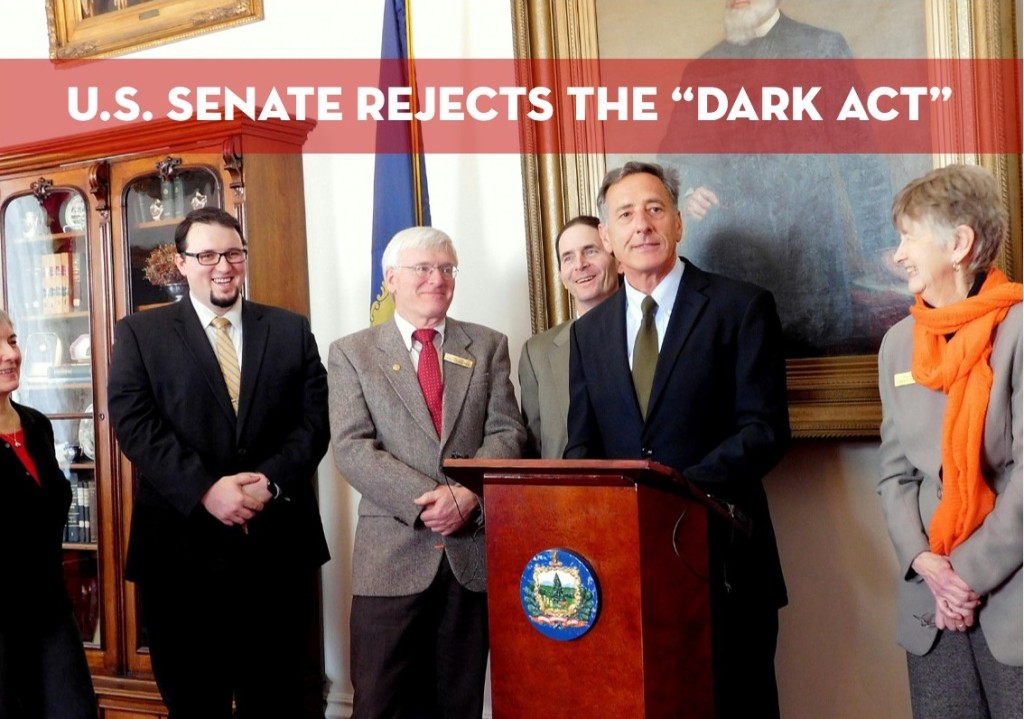In a win for consumers across the country today, the U.S. Senate voted 48-49 against advancing a bill, known as the new Deny Americans the Right to Know (DARK) Act, which would preempt Vermont’s GMO labeling law. In a press conference among representatives from VPIRG and the Vermont Right to Know GMOs coalition as well as legislative champs, Vermont Governor Shumlin spoke of our most recent success in the drawn out battle for common sense labeling:
“The food industry, led by Monsanto, has left no stone unturned in their effort deny consumer rights and thwart Vermont’s law. Today’s effort in the U.S. Senate was just the latest attempt. It will not be the last. Vermont will continue to fight to implement our law on July 1st and give consumers the right they are demanding.”
Earlier this month the Senate Committee on Agriculture, Nutrition, & Forestry passed the bill, which was introduced by the committee chairman Senator Pat Roberts (R-Kan.). In the attempt to leave “no stone unturned,” industry opponents and their allies in Congress sought to trample on state and individual rights by ignoring the democratic process and passing a bill that received no hearings or discussion in committee or on the Senate floor. On Monday night of this week Sen. Roberts introduced a revised version of his bill, but today it failed a cloture vote without the 60 votes needed to close debate.
VPIRG Consumer and Environmental Advocate Falko Schilling commented on the vote saying,
“We applaud the Senators who stood up today to support consumers’ right to know what’s in their food, and Vermont’s right to inform its citizens. This bill is just one more example of how Washington puts corporate special interests ahead of the public interest, and we urge all the members of Congress to stand with the 90% of Americans who want to know if their food is produced with genetic engineering.”
Sen. Roberts’ version of the DARK Act would have not only preempted Vermont’s labeling law, but potentially over 130 other state seed and food protection laws as well. Under the bill’s plan, companies would continue to make voluntary disclosures and after three years the USDA Secretary would determine whether 70% of the most frequently consumed packaged food had adequate disclosures. If they did not, USDA could require a mandatory solution, such as mandatory toll-free numbers, QR codes, or web sites; these types of “solutions” however are no substitute for a simple, equitable, and accessible GMO disclosure line on food packaging.
Along with the Vermont Right to Know GMOs coalition, we would like to extend a sincere thank you to everyone, including Vermont’s congressional delegation, who have been vocal in their opposition. In response to the vote today, Senator Pat Leahy noted, “Vermont has done pioneering work on behalf of consumers, and Vermont’s law is a good place to start that national debate.”

